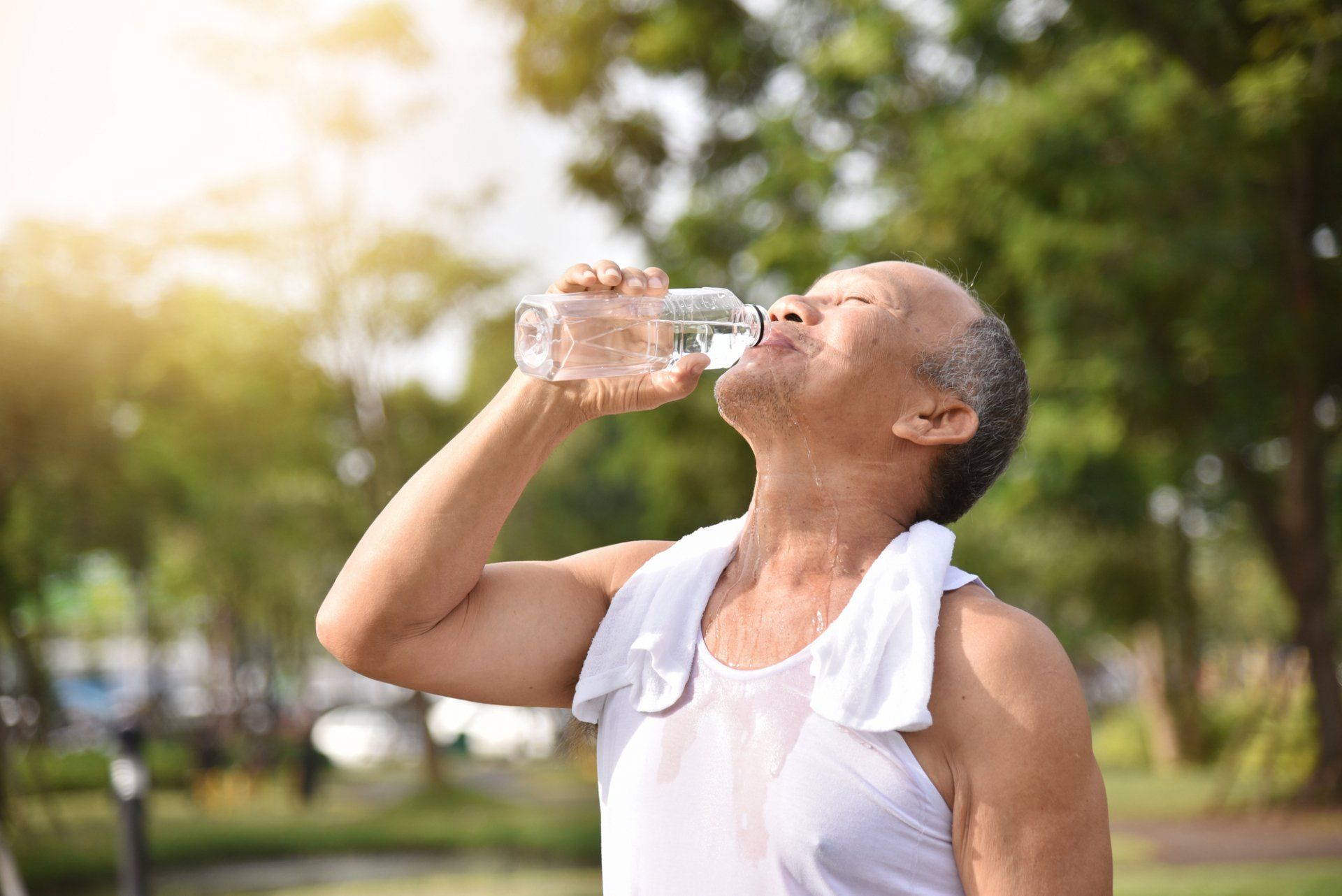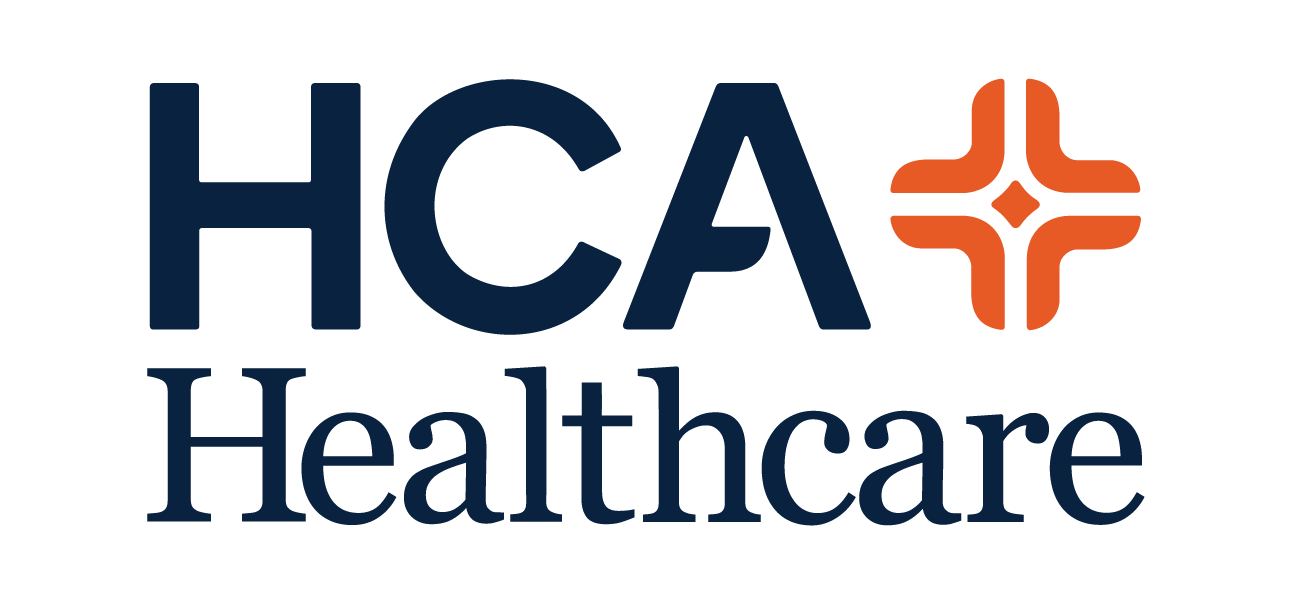Horizon West's very own health resource weighs in on your need for water!
Hydration is defined as the condition of having adequate fluid in body tissues. It is easy to overlook the importance of hydration and not realize the major impact it has on the body. At approximately 60% water, the body utilizes fluid for maintaining regular bodily functions. Drinking enough water helps to make sure cells grow, joints stay lubricated, kidneys remain healthy, food digests and body temperature regulates. Drinking enough fluid also has a positive effect on energy and helps to prevents headaches, clears toxins from the body, aids with constipation and even helps with weight loss. Water does all that and more!
The body loses water in ways you may not expect. Sweating is more obvious, but unconsciously we lose body water by breathing, coughing, and even sneezing. Water losses increase when exercising, working, or playing, especially outside in the sun and when the weather is hot or humid.
When losing 2% of your body weight from sweating (that equates to 3 pounds for a 150-pound person) you may begin feeling the side effects of dehydration. Mood changes, fuzzy memory and difficulty paying attention all result from not staying well hydrated. Severe dehydration can affect heart rate, blood pressure, body temperature and lead to a variety of
heat-related illnesses including heat rash, heat cramps, heat exhaustion or a life-threatening condition known as heat stroke.
How much do I need?
Water goals are personalized because they are based on body size, physical activity, climate, age, and overall health. The common suggestion to drink 8 cups (64 fl oz) of water each day may be helpful as a general guide but does not satisfy the specific needs for every individual.
Adequate intakes set by the U.S. National Academies of Sciences, Engineering, and Medicine provide general recommendations to take in 15 ½ cups (125 oz) for men and 11 ½ cups (91 oz) for women of total fluid each day. Total fluid includes liquids of any type, such as water, coffee, or milk, along with any fluids derived from foods like soups, fruits, and vegetables. Based on these recommendations, food accounts for up to 20% of the fluid we take in, or about 2-3 cups.
Personalize fluid needs by paying attention to thirst and urine color. Drinking when thirsty and making sure urine is light yellow or straw in color helps to ensure proper hydration. Excessive thirst and dark urine are indicators of possible dehydration.
How do I
stay hydrated?
When thinking about hydration, most think of water or sports drinks. Water is always a great choice because it is easily obtained and calorie free. A good guide is to drink water upon waking to replace losses from breathing at night, before each meal and before, during and after exercise or working in the heat. Monitor urine color and thirst; adjusting as needed. Sweetened drinks like soda, sports and energy drinks often contain a large amount of added sugar, providing large quantities of unwanted calories. Although sports drinks play a role in hydration, they are generally needed in circumstances requiring replacement of sweat losses and electrolytes such as after exercising for extended periods. Water generally is sufficient for exercise lasting under an hour.
Even with large sweat loss, drinking water and eating salty foods and foods high in potassium like fruits and vegetables replace fluid and needed electrolytes. Including foods that contain water not only aids rehydration, but also contributes to fluid needs. Snack on celery, strawberries or watermelon and add a salad made with cucumber, lettuce, and spinach to add hydrating foods in your menu. On the flip side, some items contribute to fluid losses, like alcohol.
To maintain good hydration, minimize alcohol intake, especially in the sun. The 2020-2025
Dietary Guidelines recommend no more than two drinks per day for men and one for women. In addition, it may be helpful to alternate drinks between alcohol and water to offset fluid loss.
Can I drink too much?
There is a condition known as hyponatremia, or water intoxication, resulting from water over-consumption. If too much water is consumed, the sodium in blood plasma becomes diluted. Typically seen in ultra-endurance athletes, hyponatremia can cause confusion, fatigue, headache, weakness and brain swelling.
Special Populations
- As we age, the
sense of thirst may diminish, making it easier to dehydrate. In addition, many medications make it necessary to include more fluids.
- Fluid needs increase during pregnancy and lactation, making it important to include more fluid daily.
- During physical activity, sweat loss creates the need for fluid replacement. Begin exercise well hydrated, drinking fluids during the day and an hour before exercise. Drink regularly throughout exercise using water during the first hour and switching to sports drinks for electrolyte replacement for activity lasting longer than an hour. Rehydrate after exercise by replacing fluid based on sweat losses. For every pound lost, drink 16 oz of fluid.
Maintaining good hydration plays an important role in the health and functioning of our bodies. Make sure to drink when thirsty, replace fluids during the day and drink more when working or exercising in the heat. Staying well hydrated impacts how we look and feel and is an easy way to support health!
Last but not least, here are Lisa's favorite recipes for fluid replacement that make staying hydrated a whole lot more fun!


























